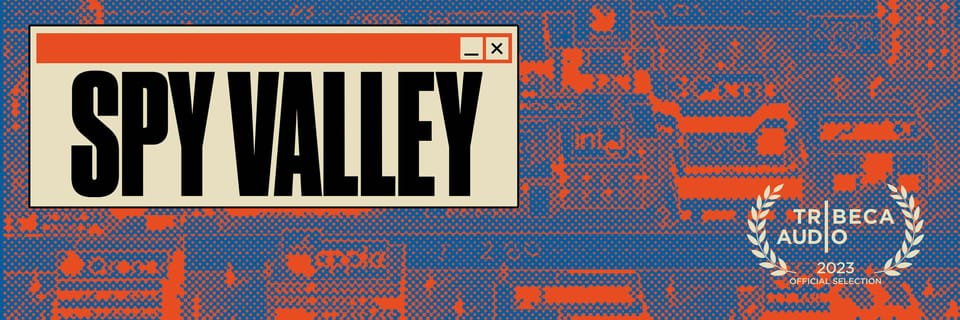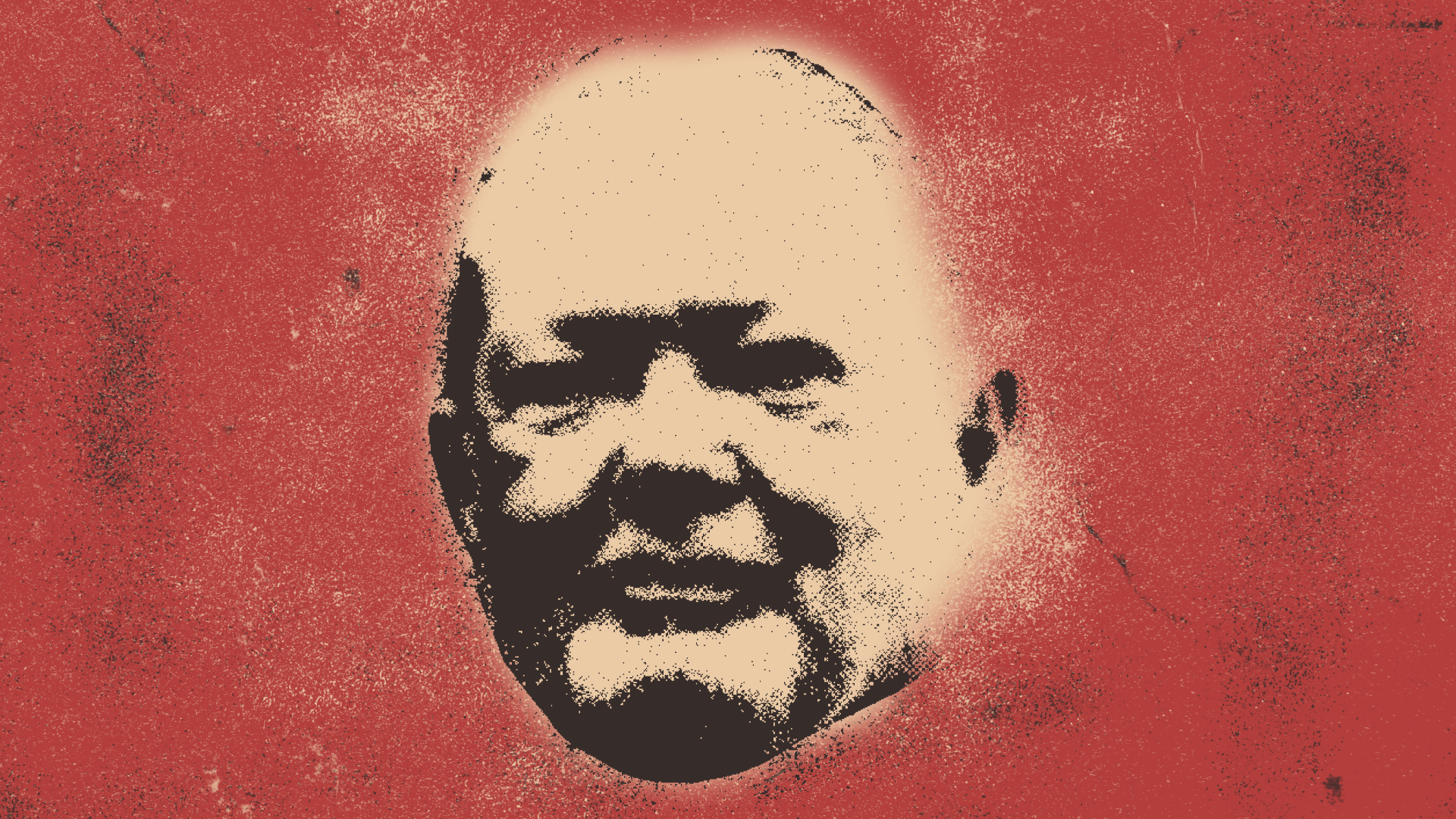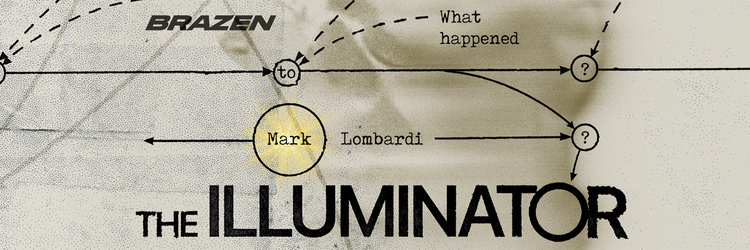Spy Valley, One Year Later

Welcome to the July edition of the Brazen newsletter! I’m Arnav, a reporter and associate producer at Project Brazen, and this month I have an interview with Spy Valley host Zach Dorfman, updates to share with you about our 2023 show Dynamite Doug, as well as a round-up of everything else we’re working on at the moment.
Today marks one year since our show Spy Valley was released. It told the story of James Harper, a Silicon Valley engineer who risked it all to sell nuclear secrets to the Soviet Bloc. I caught up with Zach Dorfman, the U.S. national security journalist who reported and hosted the show, to discuss the story.
What does Harper’s story tell us about our current world?
Zach: “Harper’s case provides an interesting template for the ways in which people are inclined to spy generally, but also narrowly in a world where we have entered an extreme chill between Russia and the West. It's almost a cliche at this point to call it a new Cold War, but I think there is a reasonable parallel there when you have a Russian leader like Vladimir Putin and the hollowing out of relations between the U.S. and Moscow since the full-scale invasion of Ukraine. It's useful to go back and look at cases where in that last period of intense superpower tension, how the Russians and their allies sought to spy on American society and get the secrets that they thought were critical to them any way they could.”
How does our contemporary nuclear environment differ from Harper’s era?
Zach: “There's been a lot more proliferation since those days, and we're in an era where you have more states either on the edge of, or over the edge of, nuclear capacity. Iran, which is very close to nuclearization. North Korea has already achieved nuclear capacity, although they don't seem to have the delivery mechanisms down. There are concerns that if Iran does achieve nuclear weapons state status, it will lead to a cascade and a new nuclear arms race in the Middle East with countries like Saudi Arabia trying to have nuclear capacity.
Whenever you have countries that want information about nuclear weapons, you have espionage surrounding that. So Harper’s story is a case study of what happens in a world where states want nuclear capabilities and to spy on the nuclear capabilities of their enemies or perceived adversaries.”
How did Silicon Valley shape Harper’s story?
Zach: “Harper’s story reveals the specific way in which the environment within Silicon Valley shaped people. The environment was one of greed and social climbing where there was the sense of the new gold rush that exists in Silicon Valley and if you're left behind, you're a loser. This is a very fertile ground for espionage. Harper was kind of an archetype. The guy who thought he was smarter than everybody else, who had technical and engineering skills and was on the margins of a lot of people who made immense fortunes, but he never was able to quite get there himself.
Silicon Valley was deeply integrated with the Pentagon and other U.S. intelligence agencies. And so there will always be people who don't make it, and there will always be people who are angry or embittered about not making it. There will also always be people with access to stuff, access to information or technology that is going to naturally be of acute interest to foreign governments.”
And is that still the case in Silicon Valley today?
Zach: “There will always be winners and losers in Silicon Valley. That's not a 1980s thing. And there will always be people who want to cut corners in such a cutthroat environment. In the 1960s it was missile secrets, in the 2020s it's microchips, it's artificial intelligence, it's access to social platforms and algorithms, and still missiles. So Harper’s story is a piece of history, but it's a piece of history that has so much resonance for today. And so are there other James Harper's out there today? Without a doubt.”
How would contemporary espionage techniques differ from Harper’s?
Zach: “Well, you're not going to be stealing documents the same way. You're not going to get a guy literally stuffing documents into a suitcase. Honestly, even in the eighties, that was antiquated. I mean, the Eastern Bloc, the Polish intel service that was then a subsidiary of the KGB, begged Harper to take a camcorder, and literally hold the camcorder over the documents and then just bring the tape with the camcorder. And now, obviously, you can fit vast amounts of data on thumb drives, but you're still going to get people who need to get that information from Place A to Place B. And so it is absolutely not obsolete to have somebody get on a plane from Washington D.C. and meet in a hotel room and hand a thumb drive over.
Human beings will always have a role in that sort of thing. Even with the rise of signals intelligence, and cyber operations, sometimes a well-placed insider who has access to information sometimes is worth a million intercepts or an entire campaign of cyber espionage.”
Zach is currently working on a new story for Politico Magazine about an FBI operation in San Francisco to sabotage illicit Soviet purchases of American technology. Look out for more details soon! And if you haven’t already listened to Spy Valley, search for it on your favorite podcast app or find out more here.
Pillaged Cambodian Statues Return Home

This week, the Metropolitan Museum of Art began repatriating 14 Cambodian sculptures in its collection that had been looted from the country during a period of war and unrest.
The sculptures had been bought by Douglas Latchford, a British "adventurer," art dealer, and smuggler, who brazenly trafficked the artifacts from Cambodia and sold them to Western museums including the Met. Dynamite Doug, our 2023 show about Latchford — the “one-man supply-and-demand” for pillaged Cambodian art — was the first to tell the story of his crimes in its entirety.
A wrap on Wonder’s first season
The first season of Wonder, our newest, most experimental show, is complete! If you’re already following the show, thank you! Wonder broke into the top five nature shows on Apple Podcasts in the U.S. and a number of other countries. To celebrate, we’re offering a 10% discount on merch at the Brazen store with the code WONDER10.
And if you haven’t tuned in yet, here’s what Wonder is all about: Each episode is a five-minute retreat into the depths of the natural world, exploring its most mysterious and unexpected marvels through a tapestry of immersive, vibrant soundscapes.







